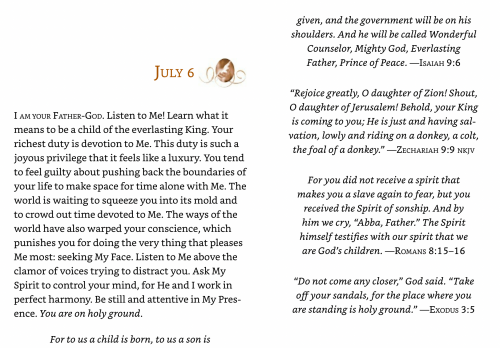Luke’s Good News:
God’s Justice
For Luke, while the ultimate meaning of the good news is still the nearness of God’s kingdom, he says it differently. He speaks not of God’s kingdom but of God’s justice, and he especially emphasizes the privileged position of the poor. Luke’s Gospel is sometimes called the “Gospel of the poor” or the “Gospel of mercy.” He stresses the freedom and liberation which come from living simply and humbly, in right relationship with others, under the reign of God. He sees Jesus as fulfilling the prophecy of Isaiah 61: “The spirit of the Lord is upon me, for he has anointed me to bring the good news to the afflicted. He has sent me to proclaim liberty to captives, sight to the blind, to let the oppressed go free, to proclaim a year of favor from the Lord” (Luke 4:18–19).
When we think of justice, we ordinarily think of a balance: if the scales tip too much on the side of wrong, justice is needed to set things right. But God’s justice does not make sense to human ideas of justice! We define justice in terms of what we’ve done, what we’ve earned, and what we’ve merited. Our image of justice is often some form of retribution, which we then project onto God. When most people say, “We want justice!” they normally mean that bad deeds should be punished or that they want vengeance. But Jesus says that’s simply not the case with God. The issue is how much can we trust God? How much can we stand in the flow of God’s infinite love? How much can we let God love us in our worst moments?
What is God’s justice? It is certainly not our Western image of a blindfolded woman standing with a scale and weighing the different sides. God’s justice is delivered simply by God being true to God’s nature. And what is God’s nature? Love. God is love, so God’s justice is in fact total, steadfast love, total unconditional giving of love. (Many of us now call this “restorative justice” instead of retributive justice.)
Brian McLaren reflects on Luke’s Gospel and God’s justice through the stories of Mary and Elizabeth’s miraculous pregnancies [Luke 1]. He understands these stories as invitations to join an adventure with God in which another world is possible:
What if their purpose is to challenge us to blur the line between what we think is possible and what we think is impossible? Could we ever come to a time when swords would be beaten into plowshares? When the predatory people in power—the lions—would lie down in peace with the vulnerable and the poor—the lambs? When God’s justice would flow like a river—to the lowest and most “god-forsaken” places on Earth? When the brokenhearted would be comforted and the poor would receive good news? If you think, Never—it’s impossible, then maybe you need to think again. Maybe it’s not too late for something beautiful to be born. Maybe the present moment is pregnant with possibilities we can’t see or even imagine.
